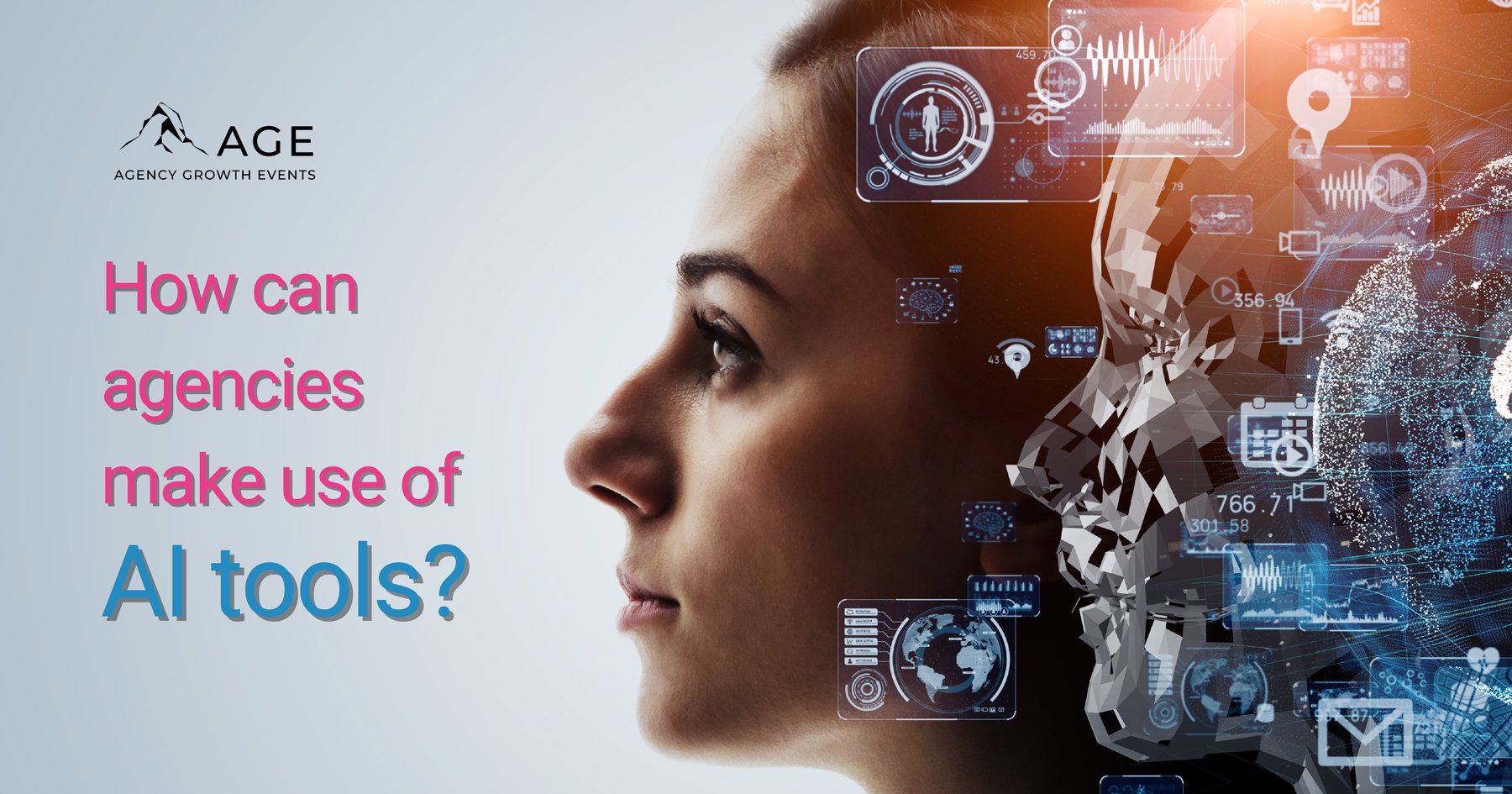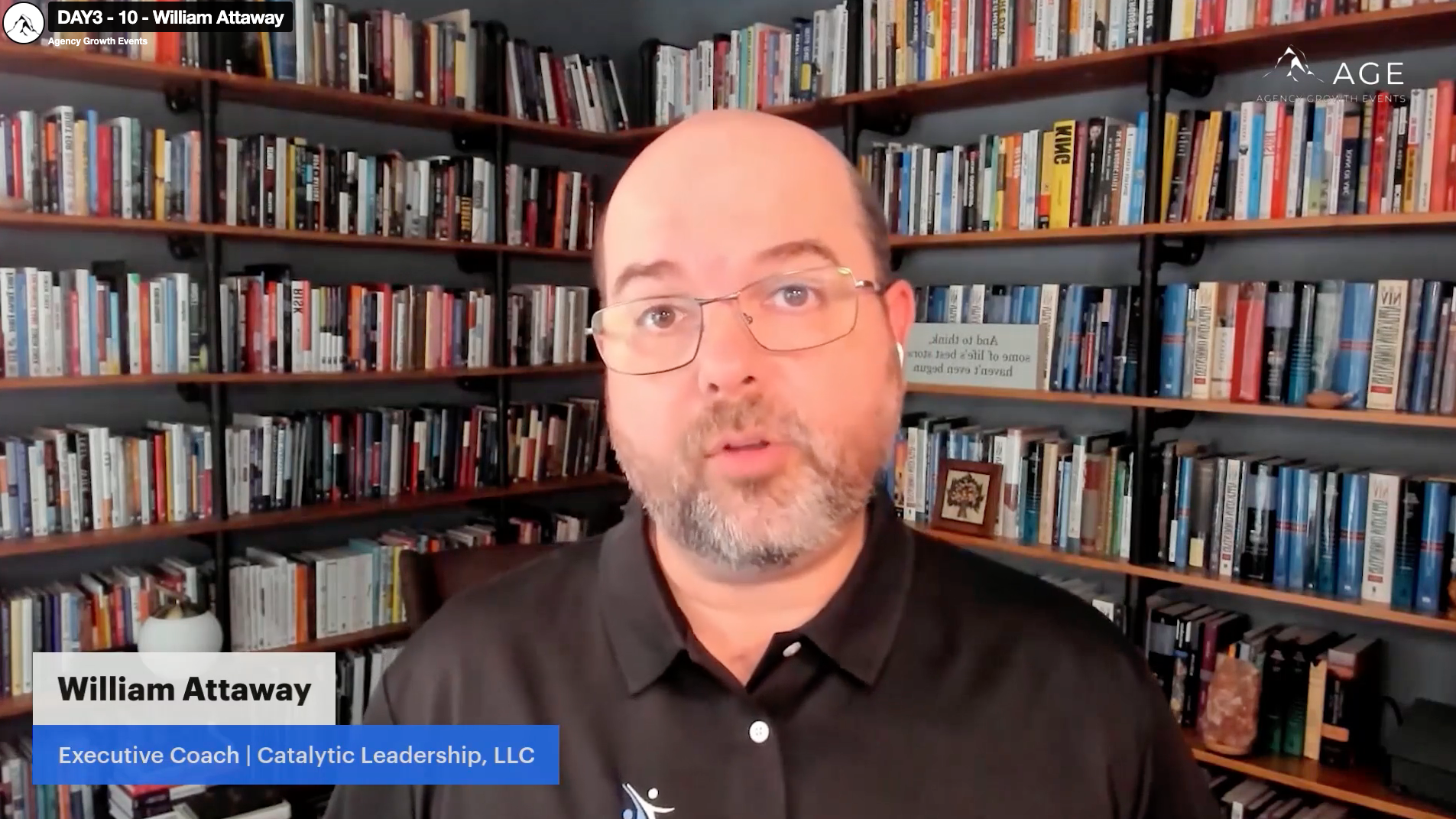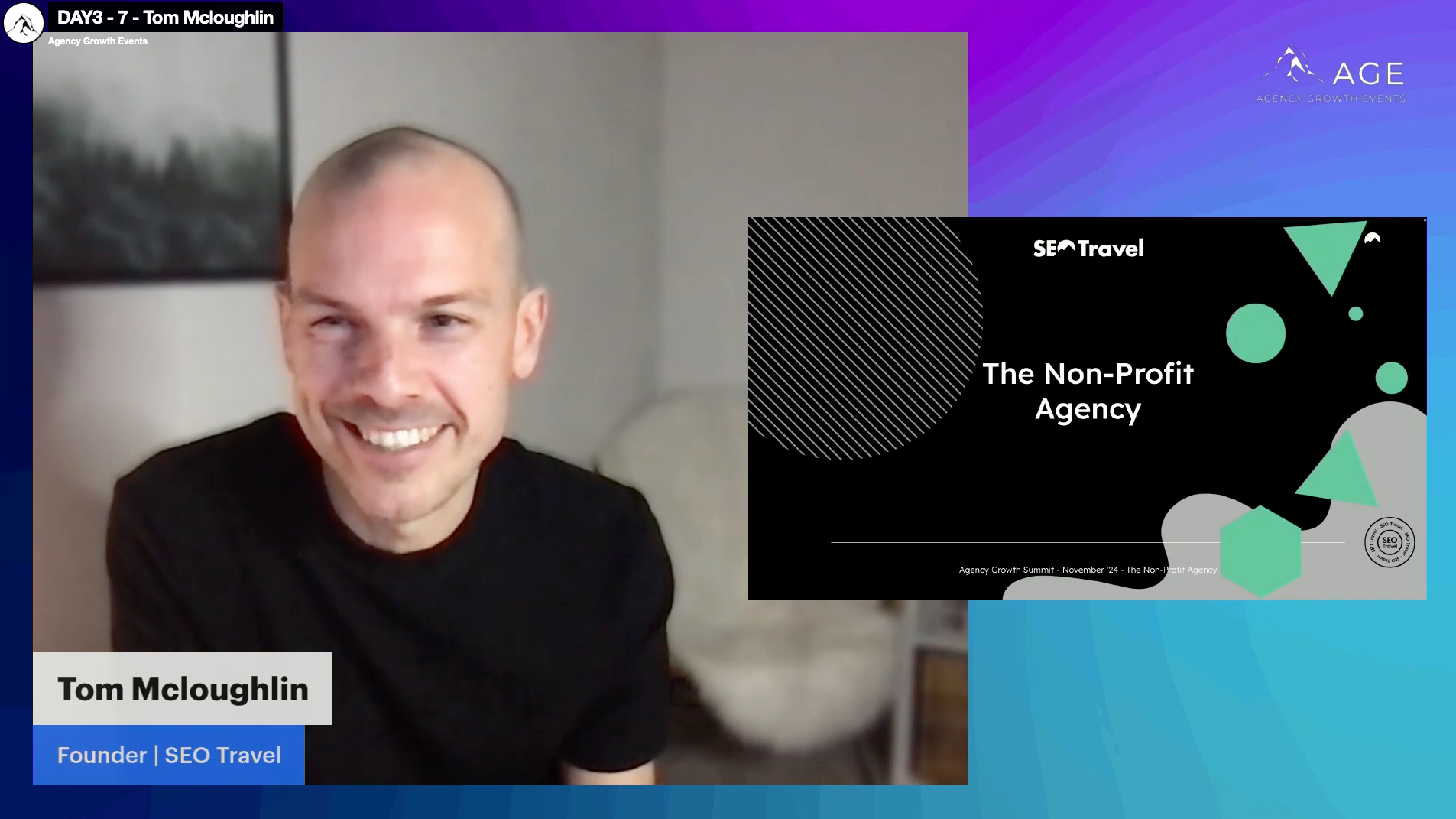How can agencies make the best use of AI marketing tools? 10 Steps to Mastering the AI Revolution
As the ever-changing marketing landscape continues to evolve, it is imperative for agencies to embrace new technologies to remain competitive. Every year there are new market trends, new tools or new ways of working that'll create a buzz in the marketing world, and digital agencies are almost guaranteed to be among the early adopters.
But every once in a while, something comes along and changes the whole world.
The advent of AI has marked a defining moment, and its impact on marketing is nothing short of revolutionary. As companies increasingly adopt AI-powered tools and strategies, we are witnessing a significant shift in the way businesses approach marketing and sales. Although AI has been around for more than a decade now, it's only recently that its potential applications have become more widely understood and embraced.
Agencies that embrace and effectively integrate AI into their digital marketing campaigns and tech stack will undoubtedly gain a competitive edge and thrive in this ever-evolving landscape. The AI revolution in marketing is just beginning, and its potential is truly limitless.
In this blog post, we'll dive deep into the world of AI in marketing, providing practical advice and helping you maximize the potential of these cutting-edge technologies. We'll define key terms, tackle the challenges agencies face when adopting AI, and outline actionable steps to effectively integrate and create an AI marketing strategy for your Agency.
Let's dive in:
What exactly does Artificial Intelligence (AI) mean? And how is it different from machine learning (ML)? or natural language processing NLP?
What is an AI Marketing Tool?
Types of AI Marketing Solutions - What can AI do for marketers?
Why Use AI Marketing Tools?
Challenges to AI implementation regarding customer data
Opportunities Artificial Intelligence Presents for Digital Agencies
AI talent, do you upskill or acquire? Or is it a new category of employee altogether?
Generative AI in Design: Revolutionizing the Creative Process
The case against AI
Quick wins for Digital Agencies
Let's start...
1- What exactly does Artificial Intelligence (AI) mean? And how is it different from machine learning? Or NLP?
Artificial Intelligence (AI) is a cutting-edge technology that enables computers to think and act like humans. Essentially, AI systems are capable of learning on their own and improving their performance over time by analyzing vast amounts of data points and making predictions based on past experiences.
In this regard, AI is different from machine learning in that it is focused on problem-solving, while machine learning is focused on data analysis, deep learning and pattern recognition. AI systems are designed to be able to learn from their environment, while machine learning algorithms are designed to recognize patterns in data. You can think of machine learning as a foundational layer of AI.
NLP is a subset of AI that enables machine learning in human languages. With the help of NLP, computers can understand, interpret, and respond to natural human language. In addition to providing the foundation for natural language user interfaces and direct access to human-readable sources like newswires.
2- What is an AI Marketing Tool?
An AI marketing tool is a software or platform that uses artificial intelligence technology to create automated decisions and perform its tasks. AI marketing tools are designed to collect data from every step of the customer journey, analyze, and interpret data to help marketers make more informed decisions about their most successful campaigns and optimize conversion rates.
Digital Agencies are used to using IFTTT (if this, then that) type of simple automation in most of the digital marketing tools available to them on the market today. (i.e. someone clicks on this button, then send them this email sequence, assign them to this person, append them to this list) But AI marketing tools operate at a level beyond automated email marketing campaigns. An AI tool can take autonomous decisions and actions based on the prompts and inputs of a digital marketer and handle much more complex tasks at scale.
Think of an AI marketing tool as the one setting the IFTTT simple task automation on your behalf, handling the outcomes, and taking further actions by itself to meet the outcomes defined by you.
Check out our article to grow your agency faster: How to Grow Your Agency? Ten quick tips you can use to unlock true Agency Growth at scale
3- Types of AI Marketing Solutions - What can AI do for marketers?
AI tools have the potential to revolutionize the way marketers approach their campaigns, offering unprecedented efficiency, personalization, and data-driven insights. By harnessing the power of AI, marketers can gain a deeper understanding of their target audience, automate time-consuming tasks, optimize ad targeting, and create more engaging content.
With advanced algorithms capable of analyzing vast amounts of customer relationships and identifying patterns, AI enables businesses to make more informed decisions, tailor their messaging to individual preferences, and ultimately create customer insights that achieve better results in terms of engagement, conversion rates, and overall ROI.
In essence, AI tools empower marketers to work smarter, not harder, allowing them to focus on strategic planning and creative ideas and strategic marketing decisions while the technology takes care of the heavy lifting.
Follow the link to access a wealth of resources on marketing for agencies: https://www.agencygrowth.events/feed/category/Marketing.
Here are some of the things AI tools can do for marketers:
Customer Segmentation
Content Generation
Chatbots
Predictive Analytics
Ad Targeting, Personalization and Optimization
Sentiment Analysis
Image and Video Recognition
Voice Assistants and Voice Search
Recommendation Engines
Customer Segmentation:
AI marketing algorithms can analyze vast amounts of customer engagement data to identify patterns and group customers based on shared characteristics. This helps marketers create more personalized and targeted campaigns, resulting in higher engagement and conversion rates.
Content Generation:
Natural language generation (NLG) is an AI technology that can automatically generate written content, such as blogs, product descriptions, and social media posts. By leveraging NLG, marketers can save time and resources while maintaining consistent content output.
As high-quality content creation takes time, marketers must plan on the goals they want to target, write the copy, edit it and distribute it in the appropriate time to maximize the effect. AI marketing programs can aid with streamlined content production processes and dramatically cut the time it takes to create marketing content, speeding up the whole content marketing campaign planning process.
Chatbots:
AI-driven chatbots have revolutionized customer experience by providing instant assistance and handling routine queries. These chatbots use NLP to understand user input and deliver appropriate responses, enhancing customer satisfaction and fostering brand loyalty.
Customers who have basic questions can get accurate answers immediately and the chatbot can decide when to forward the query to a human. The bots also can leverage the history of questions to learn from previous answers and provide personalized solutions to customers' questions. This enables customer service representatives to focus on more complex requests that require human nuance.
Predictive Analytics:
AI can analyze any sort of historical data to predict future trends and deduct potential consumer behaviors. Marketers can use these valuable insights to forecast demand, optimize pricing, and allocate resources more effectively. This magnifies the quality and quantity of the output of the data analytics department
Ad Targeting, Personalization and Optimization:
AI can analyze user behavior and create an in-depth understanding of their preferences to deliver highly targeted ads, ensuring that marketing messages reach the right audience at the right time. Additionally, AI tools can continuously optimize programmatic advertising by adjusting bidding strategies, ad placements, and creative elements based on real-time performance data.
AI marketing tools can automate campaigns, allowing marketers to create personalized content for their customers without having to manage every step of the process manually.
Moreover, AI-driven personalization helps marketers deliver content that is tailored to each individual customer's needs and interests. This goes much further than personalizing email subject lines and helps increase engagement and conversion rates.
Sentiment Analysis:
By utilizing NLP, AI can analyze the sentiment behind customer feedback, reviews, and social media mentions. This helps marketers gauge consumer sentiment towards their brand, products, or campaigns, allowing them to make informed decisions and address customer concerns promptly.
Image and Video Recognition:
AI technologies like computer vision can automatically recognize and tag visual content, such as images and videos. This enables marketers to understand the context of user-generated content better, monitor brand usage, and even detect copyright infringements.
Voice Assistants and Voice Search:
With the rise of voice-activated devices like Amazon's Alexa and Google Assistant, AI recognition has become a critical component of ai marketing strategies. Marketers must optimize their content for voice search and consider the use of voice-based advertising and customer support.
Recommendation Engines:
AI-driven recommendation systems analyze user behaviour, purchase history and preferences to provide personalized product or content suggestions and dynamic pricing. These engines play a crucial role in enhancing customer experience on e-commerce platforms and content streaming services, boosting engagement and driving sales.
4- Why Use AI Marketing Tools?
Quick answer: Because everyone else does, and they're becoming the norm, not the exception!
Just like the early days of digital photography, which marked a significant shift from traditional film-based methods, AI adoption is transforming the way businesses approach various tasks, including marketing. In both cases, the transition to new technology has brought about increased efficiency, convenience, and accessibility.
Digital photography revolutionized the way we capture, edit, and share images, and similarly, AI is changing how we analyze data, interact with customers, and optimize marketing campaigns. Early adopters of digital photography gained a competitive advantage over those who clung to traditional methods, and the same holds true for businesses embracing AI today.
By harnessing the power of AI, marketing leaders and, ultimately, companies can stay ahead of the curve, streamline their operations, and ultimately outpace competitors who are slow to adapt to this game-changing technology.
On the other hand, not adopting AI marketing can pose significant risks for digital agencies. One primary risk is losing their competitive edge as not only other agencies harness the power of AI but also the brands directly. As AI-driven solutions become increasingly sophisticated and accessible, internal marketing teams are sure to experiment with their digital marketing efforts and start to think twice about those agency contracts if you're not further ahead of them in this revolution.
In the short term, we're sure to see some brand management teams using marketing ai for ever larger portions of their marketing operations overall.
Ultimately, failing to embrace ai marketing can hinder an agency's growth, profitability, and long-term success in an increasingly competitive market.
5- Challenges to AI implementation regarding customer data
There are a variety of potential challenges when it comes to AI implementation, but one of the most significant is related to customer data collection and processing. Businesses need access to accurate and up-to-date high-quality data assets to leverage AI for marketing purposes. Without this data, AI algorithms cannot deliver meaningful results, and marketers will be unable to optimize their campaigns.
Additionally, businesses must ensure that customer data is kept secure and managed in a compliant manner, as the mishandling of data can lead to privacy violations and legal ramifications.
To mitigate this risk, businesses should use reliable services for storing and processing all that data to ensure it remains safe. It's also important to train employees on proper data handling practices and ensure that privacy policies are up-to-date and in compliance with applicable regulations.
Here are a few key concerns and hurdles that organizations may face when incorporating AI into their operations:
Data Privacy and Security:
Ensuring the privacy and security of customer behavior data is critical when using AI algorithms. Businesses must implement robust data protection measures, such as encryption and access controls, to prevent unauthorized access or data breaches that could damage their reputation and lead to legal penalties.
Data Quality:
AI algorithms rely heavily on the quality and accuracy of the data they process. Incomplete, outdated, or incorrect data can negatively impact the effectiveness of AI marketing tools, leading to subpar results or even misleading insights. Businesses must invest in more data cleansing and validation processes to ensure their AI systems have access to reliable, high-quality information.
Compliance with Regulations:
Organizations must comply with various data protection regulations, such as the General Data Protection Regulation (GDPR) in the EU or the California Consumer Privacy Act (CCPA) in the United States. These regulations impose strict requirements on how businesses handle customer data, including how it's collected, stored, and processed. Non-compliance can result in hefty fines and damage to a company's reputation.
Bias and Discrimination:
AI algorithms can inadvertently reinforce or perpetuate biases present in the data they analyze. This can lead to unfair or discriminatory outcomes in customer segmentation, targeting, or personalization efforts. Businesses must be vigilant in identifying and addressing potential biases in their AI systems to ensure fairness and avoid reputational harm.
Transparency and Explainability:
AI-powered tools can sometimes function as "black boxes," making it difficult for businesses to understand how they arrive at particular insights or recommendations. This lack of transparency can hinder trust and adoption among both internal stakeholders and customers. Organizations should strive to use AI solutions that offer explainability and seek to understand the logic behind their algorithms.
Change Management:
Integrating AI into existing processes and systems can be a complex undertaking, requiring significant changes in workflows, roles, and responsibilities. Businesses must invest in change management initiatives, including employee training and communication, to ensure a smooth transition and maximize the benefits of AI implementation.
Ethical Considerations:
The use of AI and data raises ethical questions around surveillance, consent, and the potential for manipulation. Organizations must carefully consider the ethical implications of their AI applications and establish guidelines to ensure responsible and ethical use of data.
By addressing these challenges and prioritizing data protection, businesses can successfully implement AI solutions while maintaining trust and compliance with applicable regulations.
6- Opportunities Artificial Intelligence Presents for Digital Agencies
AI presents numerous business opportunities for digital agencies as a service business, enabling them to capitalize on technological breakthroughs and deliver enhanced value to their clients. Key benefits include:
Increased Speed of Delivery:
AI tools can process and analyze data much faster than humans, enabling digital agencies to deliver insights, optimizations, and results more quickly. The same holds true for any kind of AI tool you'll use to replace your current tech stack.
Efficiency and Resource Optimization:
By automating routine tasks and streamlining processes, AI allows agencies to do more with fewer people, reducing labor costs and reallocating human resources to focus on higher-value work. In doing so, AI enables digital agencies to scale their operations more easily, as Agencies can lean on AI to handle automated processes and increased workloads without the need for significant additional resources.
Capitalizing on Technological Breakpoints:
Early adoption of AI technology gives digital agencies a competitive edge, positioning them as innovators and thought leaders in the industry. This can attract new clients seeking cutting-edge solutions and foster long-term business growth.
Innovative Services:
Digital agencies can expand their service offerings by incorporating AI-powered solutions, such as predictive analytics, sentiment analysis, and advanced targeting, differentiating themselves from competitors and attracting new clients. This means creating new products, booking new revenue and growing your business quickly, with the help of mastery of the new tools out there.
7- AI talent, do you upskill or acquire? Is it a new category of employee altogether?
The rapid advancement of artificial intelligence (AI) technology has created a significant demand for skilled professionals who can integrate and operate AI tools and systems. The current consensus is that marketers won't be replaced by AI but by humans that operate AI.
As agencies increasingly adopt AI-driven solutions and look to create their ai marketing teams, they face a critical dilemma: should they upskill their current employees or acquire new talent? Here's a quick assessment of the two options:
Upskilling Current Employees: Pros and Cons
Benefits:
Retaining institutional knowledge and company culture
Reducing recruitment and onboarding costs
Demonstrating commitment to employee growth and development
Drawbacks:
The time-consuming and resource-intensive training process
Potential limitations in existing employees' capabilities or aptitude for AI-related skills
Risk of overburdening staff with additional responsibilities
Acquiring New AI Talent: Pros and Cons
Benefits:
Immediate access to specialized skills and expertise
Infusion of fresh perspectives and ideas
Ability to scale AI initiatives more quickly
Drawbacks:
High recruitment and onboarding costs
Integration challenges with company culture and existing teams
Intense competition for scarce AI talent
In the current job market, there is a significant imbalance between the supply and demand for AI talent. As more businesses invest in AI technology, the need for professionals with expertise in machine learning programs, natural language processing, and data analytics continues to grow. However, the scarcity of individuals with these skills has led to fierce competition among employers and inflated salary expectations.
Identifying the necessary skills to excel in AI is another challenge, as the field is continuously evolving and often requires a combination of technical, analytical, and soft skills. Furthermore, the rapid pace of change in AI technology means that even experienced professionals must continuously update their skills to stay relevant.
When addressing the need for AI talent, businesses should consider a balanced approach that combines upskilling current employees and acquiring new ones. This strategy allows companies to leverage the strengths of their existing workforce while also benefiting from external expertise.
Moreover, it's essential to recognize that AI talent may represent a new category of employee altogether. As AI becomes increasingly integrated into various business functions, professionals with a deep understanding of both AI technology and industry-specific knowledge will be invaluable. Consequently, organizations must prioritize cultivating this unique blend of skills within their workforce, either through targeted training programs or strategic recruitment efforts.
Navigating the AI talent dilemma requires a thoughtful and flexible approach that considers the unique needs and resources of each organization. By investing in both upskilling existing employees and acquiring new talent, businesses can position themselves for success in the rapidly evolving world.
Don’t forget to check out our article 8 Steps to Hiring the Best Talent for a Digital Agency.
8- Generative AI in Design: Revolutionizing the Creative Process
The fusion of AI technology with human creativity has the potential to revolutionize the way businesses approach marketing and problem-solving.
As discussed above, AI solutions excel in processing vast amounts of data, identifying patterns, automating repetitive tasks, and providing data-driven insights with remarkable speed and accuracy.
On the other hand, human creativity brings a wealth of experience, intuition, empathy, and the ability to think outside the box – qualities that are not easily replicated by machines.
By combining these complementary capabilities, businesses can harness the power of AI to augment human creativity and drive more impactful marketing strategies. A very good example of this is Generative AI in design.
By leveraging integrated machine learning apps, generative AI can produce a wide range of original design outputs based on specific parameters, constraints, and input data. As a result, designers can explore new creative possibilities, iterate more rapidly, and ultimately deliver more compelling and engaging visual experiences.
AI-driven tools can analyze existing visual elements like color schemes, typography, and layouts to generate new design concepts that align with a specific brand identity or aesthetic. In web design, generative AI can assist in creating responsive layouts, optimizing user interfaces, and personalizing website experiences based on user behavior and preferences.
Despite its potential to revolutionize the design process, it is essential to recognize that generative AI should be viewed as a tool that complements and enhances human creativity rather than replacing it. The combination of AI-driven automation and human intuition, empathy, and artistic sensibility can result in more innovative and impactful designs that resonate with audiences on a deeper level.
9- The case against AI
As we continue to integrate AI into our daily lives, it is essential to consider the potential negative implications and consequences of this technology. Let's have a look at a few of these in detail.
Ethical and Moral Considerations
One of the primary concerns with AI is the ethical and moral issues that arise from its deployment. As AI marketing increasingly influences decision-making processes, there is a risk of undermining human autonomy and Agency.
Lack of Accountability
As AI systems become more complex, it becomes increasingly difficult to determine who is responsible for their decisions and actions. This lack of accountability can lead to situations where no one is held responsible for the consequences of AI-driven decisions, creating a dangerous gap in oversight and regulation.
Bias and Discrimination
Another critical issue with AI marketing is the potential for bias and discrimination within algorithms. AI systems learn from the data they are fed, which can often contain inherent biases present in society. This can lead to biased decision-making, disproportionately affecting marginalized groups. Unfortunately, the right measurement tools do not exist to gauge if the content is biased or not automatically. This is still a human job.
Economic Impact and Job Loss
The automation of jobs and professions by AI has sparked concerns about mass unemployment and the exacerbation of economic inequality. While AI has the potential to improve productivity and efficiency, it may also displace millions of workers, particularly in low-skilled jobs.
Technological Singularity and Superintelligent AI
The concept of technological singularity, where AI surpasses human intelligence, raises concerns about the potential risks associated with a world governed by superintelligent machines. (read: The Terminator) While this scenario may seem far-fetched, the rapid pace of AI development makes it a legitimate concern. Ensuring the safe and ethical development of AI requires ongoing research, collaboration, and the establishment of guidelines and regulations to prevent unintended consequences.
If you're interested in AI, also you might enjoy learning more about the business side of things too. To learn more about agency models and pricing, watch Marcel Petitpas - How Do Agencies Make Money?
10- Quick wins for Digital Agencies
As discussed above, it's essential to understand how to integrate AI into your Agency's work effectively. Here are a few steps you can take to get started with artificial intelligence in marketing and choose the right ai platform for your Agency. Doing so will get your marketing artificial intelligence ready:
1- Improve Content Generation
Quick Win:
Utilize AI-powered writing assistants to create engaging, high-quality content quickly.
Potential Impact:
Enhanced content quality, increased output, and more time for strategic thinking.
2- Enhance Visual Content Creation
Quick Win:
Utilize AI-powered design tools to create visually appealing graphics, videos, and animations.
Potential Impact:
Improved brand consistency, increased engagement, and reduced reliance on external design resources.
3- Automate Social Media Management
Quick Win:
Save time and resources by automating social media posts, content curation, scheduling, and analytics.
Potential Impact:
Increased engagement, improved brand awareness, and more time for strategic planning.
4- Streamline SEO Analysis
Quick Win:
Employ AI-powered SEO tools to identify optimization opportunities and monitor search performance.
Potential Impact:
Improved search rankings, increased organic traffic, and better ROI on content marketing campaigns.
5- Analyze Sentiment and Social Listening
Quick Win:
Use AI-driven sentiment analysis tools to gauge customer feedback, monitor brand reputation and create marketing insights across social media platforms. Couple these with conversion optimization tools to create brand language optimization.
Potential Impact:
Enhanced brand reputation management, informed decision-making, and improved customer experience.
By integrating AI marketing into your digital Agency's work, you can achieve quick wins that have a significant impact on your business. Start by identifying the areas where AI can provide the most value for your target audience and begin implementing the tools and resources mentioned above to reap the benefits of this transformative technology into your marketing strategy.
Conclusion
AI marketing presents numerous opportunities for digital agencies to capitalize on and enhance their service offerings. By combining upskilling current marketing teams with recruiting new AI talent, organizations can benefit from both external expertise and the institutional knowledge of existing teams. Additionally, businesses must prioritize cultivating a unique blend of technical, analytical, and soft skills that are essential for success in this rapidly evolving field.
Through thoughtful consideration of these challenges and proactive solutions to address them, businesses can successfully implement ai marketing while maintaining trust and compliance with applicable regulations. With the right marketing strategy in place, digital agencies have an opportunity to stay ahead of the competition by leveraging innovative technologies like marketing ai.
Do you think about working with an agency coach to achieve a successful agency? Check out our article What does an Agency Coach do?
Further reading:
Don't miss Alejandra Tobon's talk on automation and agency growth at the Agency Growth Book Launch: Are robots eating your lunch?
Download The Agency Growth Book today and start growing your Agency faster!

























